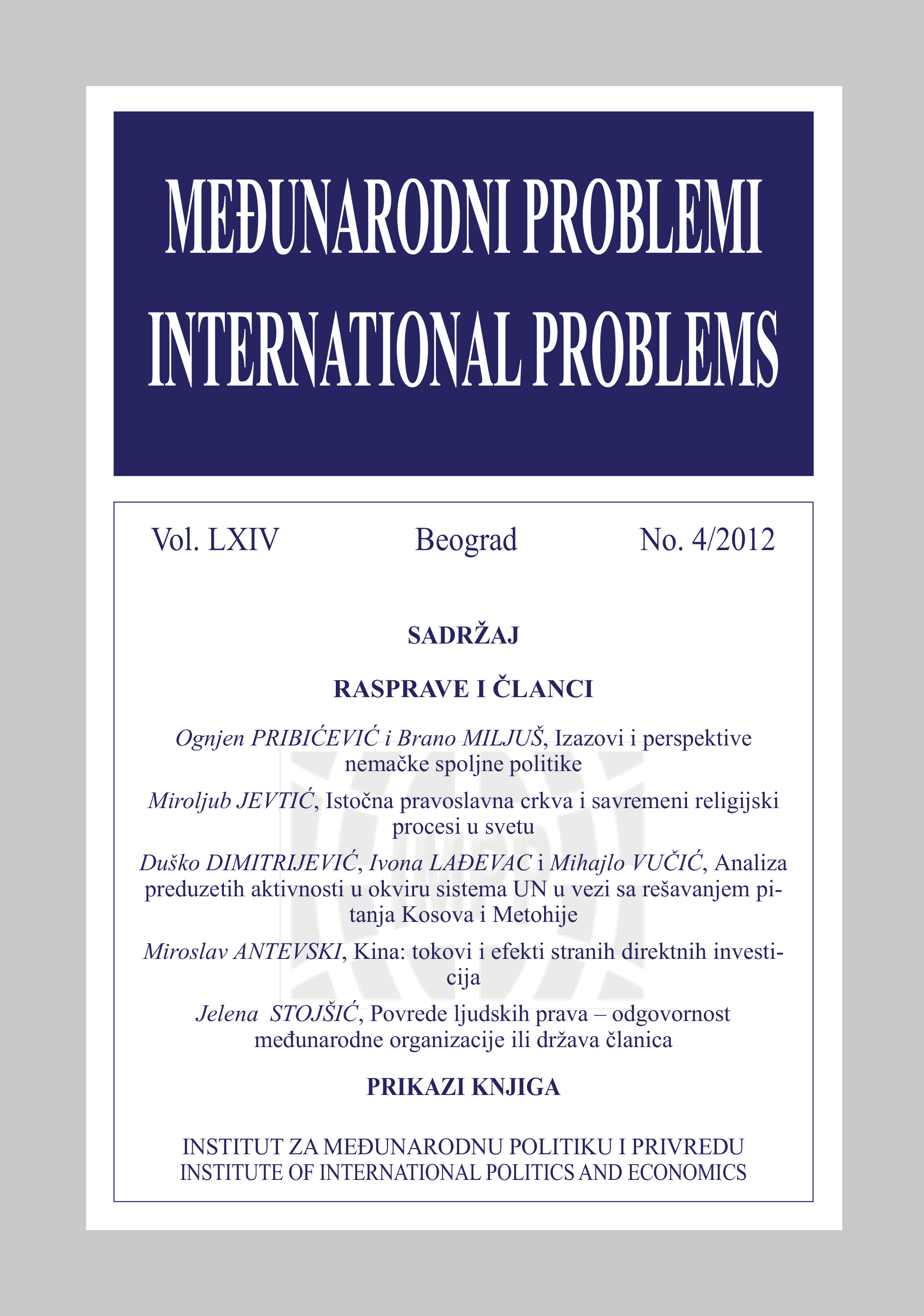Izazovi i perspektive nemačke spoljne politike
Challenges and prospects of German foreign policy
Author(s): Ognjen Pribićević, Brano MiljušSubject(s): Politics / Political Sciences
Published by: Институт за међународну политику и привреду
Keywords: Germany; European Union; foreign affairs; world politics; United Nations; NATO
Summary/Abstract: For the last few years, the German foreign policy has been under constant temptations and substantial reconsideration. The key role in resolving the difficult economic and financial crises in the EU, the development of close economic ties with the Russian and other rising world economic powers, the decision to sustain in the UN Security Council in deciding to authorise the use of force in Libya, as well as the dominant attitude towards the crises in Greece and Kosovo clearly shows the wish of Germany to pursue a more independent foreign policy. In spite of all these efforts and its huge economic power, Germany has failed to become a global political power. Moreover, in order to protect and develop its trade interests Germany must remain within the frameworks of the EU and the NATO. For a long time, Germany has been one of Serbia's most important economic and political partners. Since it is realistic to expect that Germany will be more oriented towards developing its economic ties with the new world economic powers, the Western Balkans and Serbia will not be in the focus of its foreign and economic policies. Therefore, for Serbia, it will be useful to concentrate on the cooperation with the mighty German provinces that have their interests in developing this cooperation. In the future, the Kosovo issues will remain the main obstacle to it.
Journal: Међународни проблеми
- Issue Year: LXIV/2012
- Issue No: 4
- Page Range: 403-424
- Page Count: 22
- Language: Serbian

